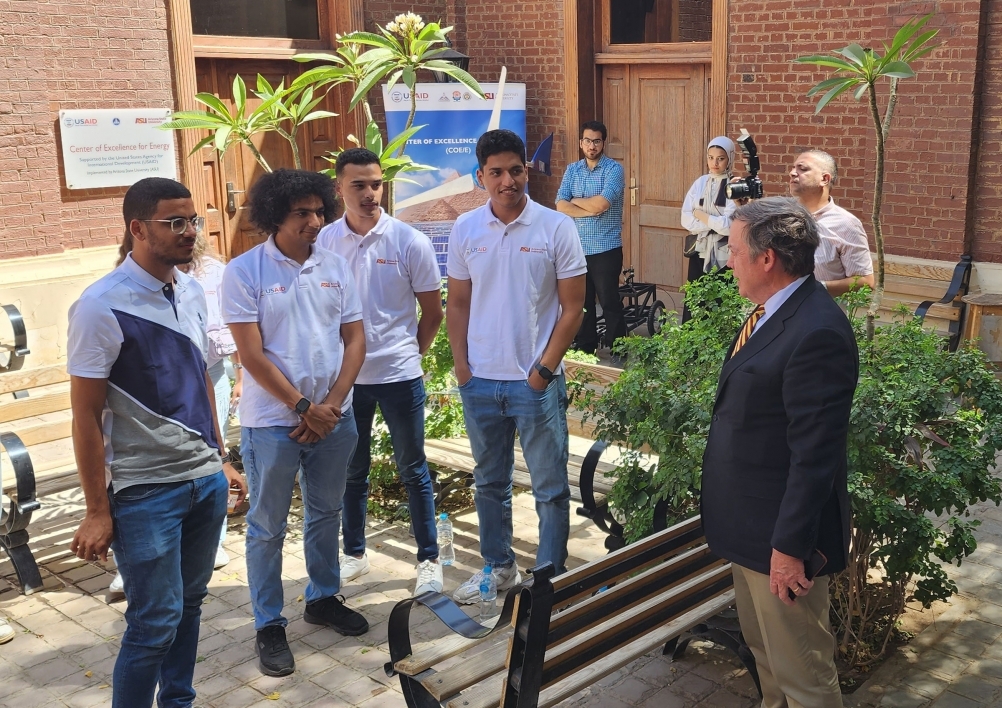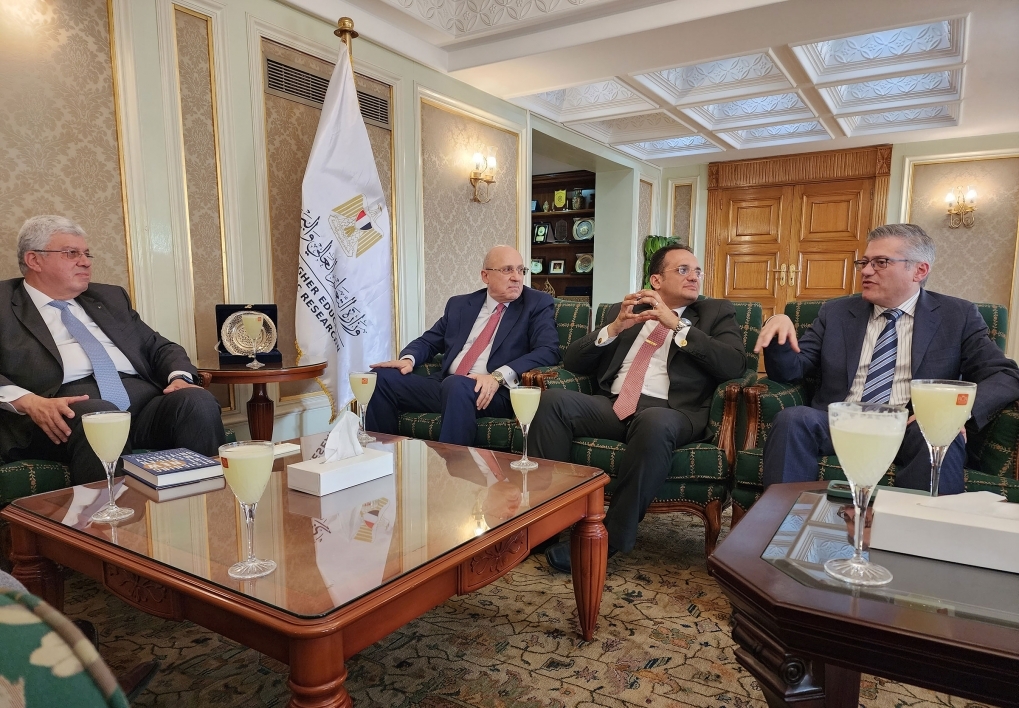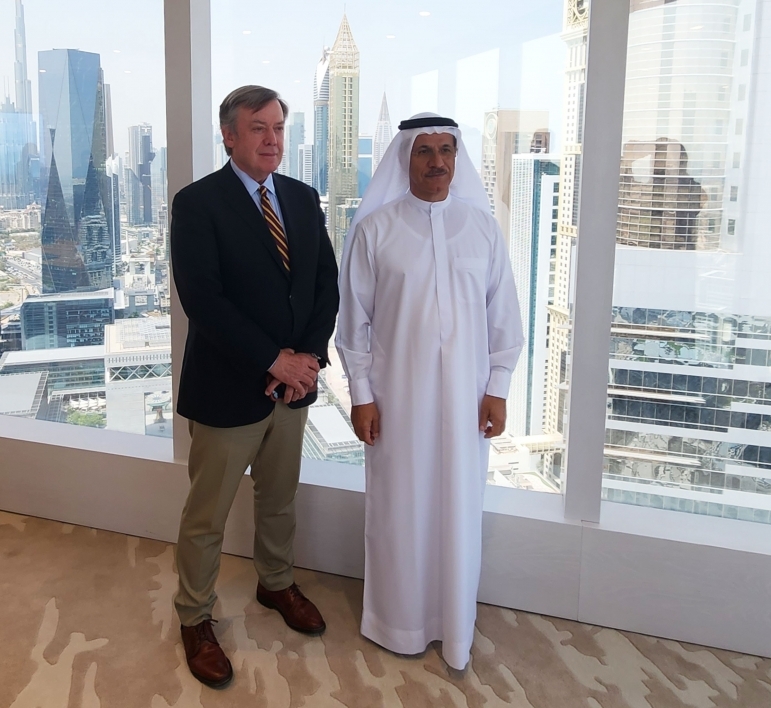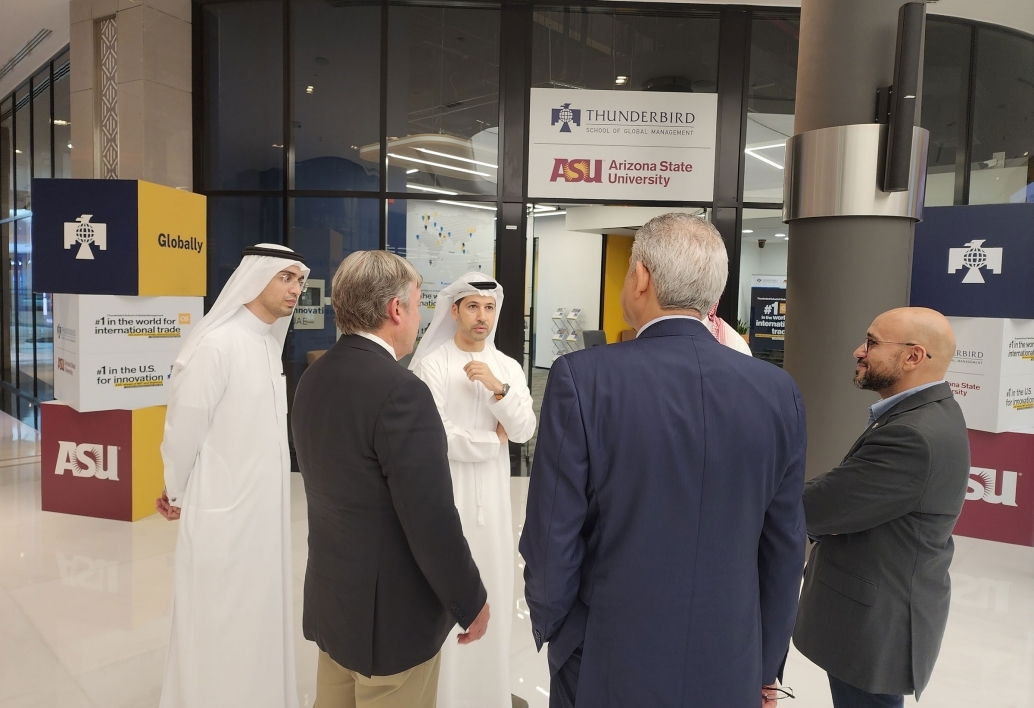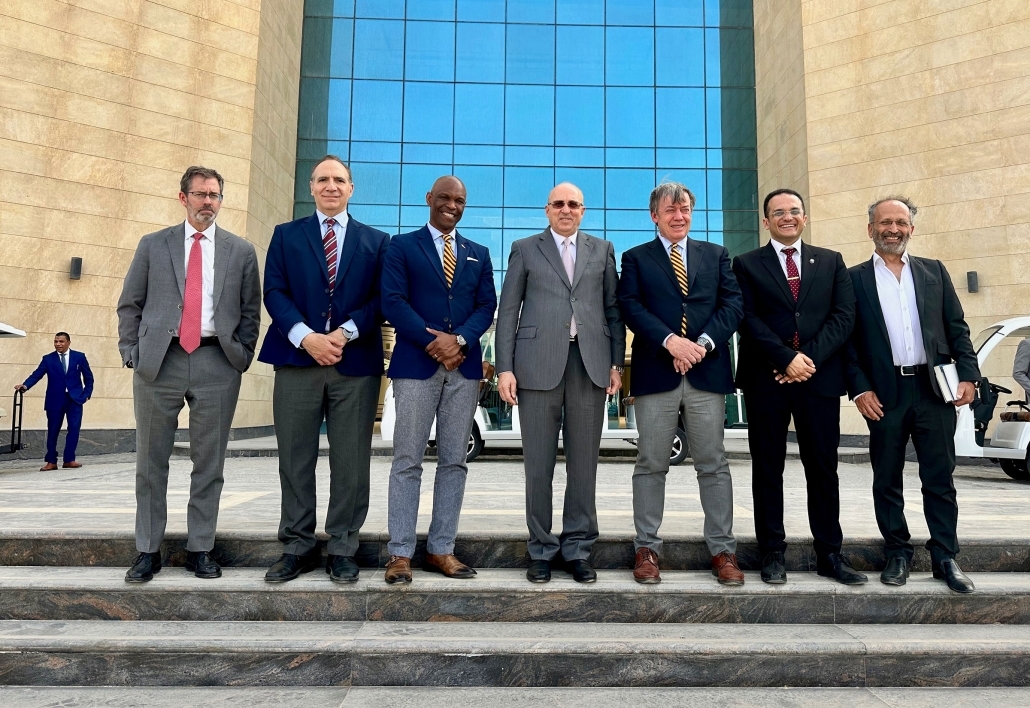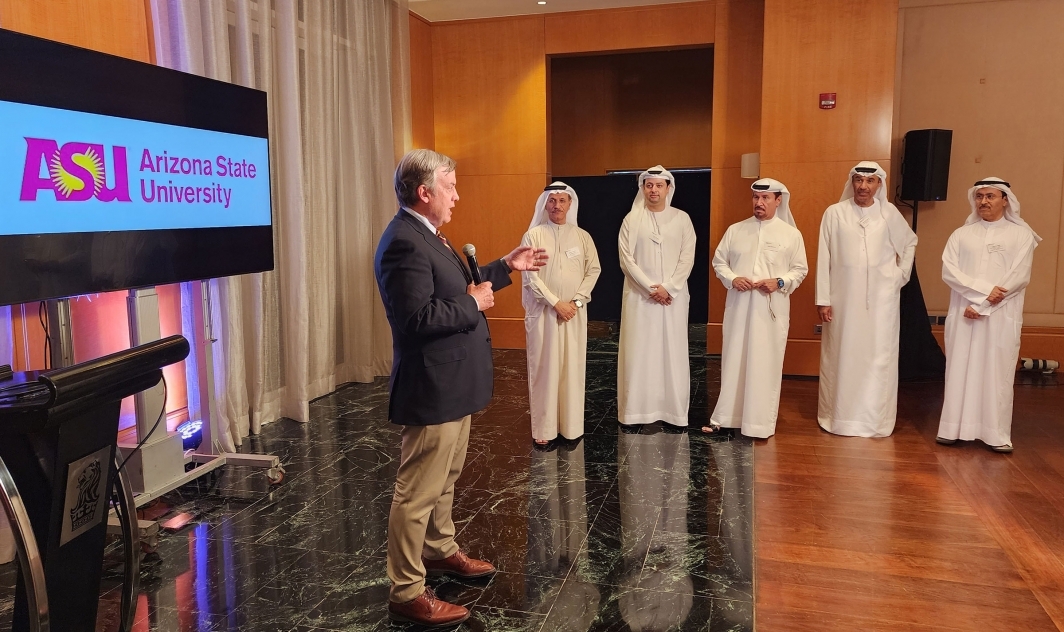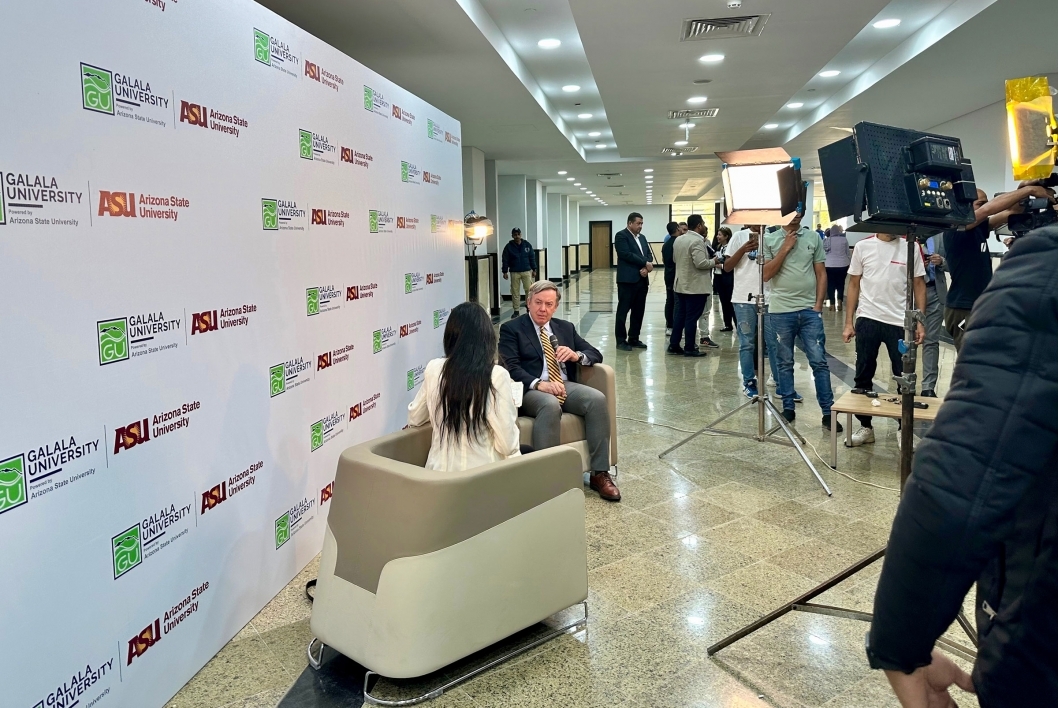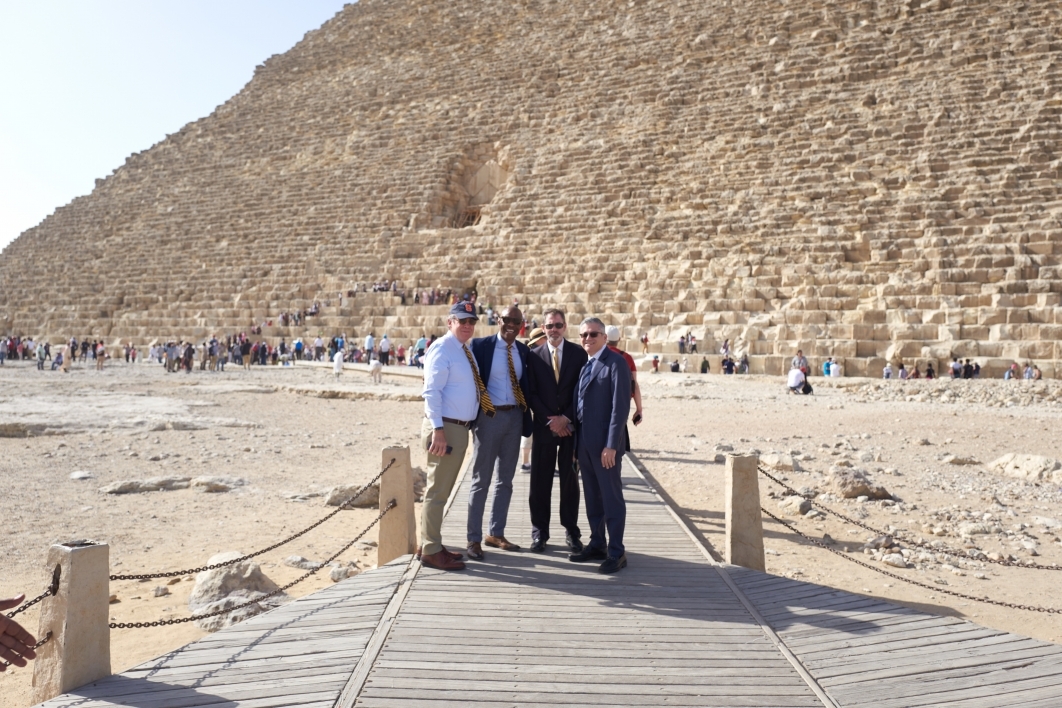ASU leaders visit Egypt, United Arab Emirates to explore education opportunities in region

President Michael Crow and others from Arizona State University recently visited Cairo and Dubai and Abu Dhabi, United Arab Emirates, as part of efforts to scale higher education, attract more international students, and identify new partners and projects in the Middle East and North Africa.
During the trip, Crow and the ASU team met with several universities, reviewed an U.S. Agency for International Development-funded ASU project in Egypt, hosted alumni, had discussions with the minister of education in Egypt and four ministers of the UAE government, and visited the Thunderbird/ASU innovation center in Dubai.
“This was a memorable and thought-provoking trip to get a firsthand look at how ASU is engaging around the world — and to be reminded about the many more opportunities that still exist as we create new programs, new approaches and new pathways to learn,” Crow said.
ASU takes a global view, with students from 158 countries and more than 12,000 international students. But the trip made clear the expanding opportunities and the potential scale for more international students to attend ASU on campus and online; the growing offerings and reach of ASU Prep Digital also offer a means of engaging international students earlier in their high school education to allow them to transition to ASU.
“We have the opportunity to impact so many students and learners across Egypt, Africa and the Middle East,” Crow said.
A highlight was a visit to ASU’s USAID-funded Center of Excellence for Energy, which is working to accelerate Egypt's renewable energy transition. Crow said he enjoyed getting a “comprehensive look at the center and speaking with students there about their experiences at ASU.”
The trip also focused on the enhancement and establishment of long-term, institutional relationships in the region to further ASU’s push for egalitarian access to quality education.
One like-minded institution visited by Crow and the ASU team was Galala University in New Cairo, Egypt. Galala is one of 17 Cintana Alliance partner universities powered by ASU. Crow met with Mohamed El-Shinawi, president of the university; Adel Al-Adawy, chairman of the board for the university; and other senior leaders and board members.
The audience for a presentation by Crow on innovation and international outreach included leaders of Galala University and cultural attaches from numerous Arab and African countries with embassies in Egypt. Interviews followed with Egyptian media outlets covering ASU’s visit.
Crow said it was clear how the deep relationships built with Galala and other Cintana partners provide a way to advance ASU’s charter and help serve students from Egypt, the Middle East/North Africa region and around the world.
In Egypt, the ASU team also toured and met with leaders of Ain Shams University and met with Ayman Ashour, Egypt’s minister of higher education and scientific research. And U.S. Ambassador John Desrocher hosted a luncheon honoring Crow.
In the UAE, President Crow met with:
- His Highness Sheikh Maktoum bin Mohammed bin Rashid Al Maktoum, the deputy ruler of the Emirate of Dubai. He also is the deputy prime minister and minister of finance of the UAE.
- His Excellency Ahmad Belhoul Al Falasi, the minister of education.
- The ministers of state for artificial intelligence, digital work and remote work applications; and for public education and advanced technology.
- The minister of state for science, advanced technologies and public education.
- Sarah Al Amiri, the chairwoman of the United Arab Emirates Space Agency and her deputy.
Crow was on hand to help launch the first UAE alumni chapter for ASU, and he later met with leaders of Khalifa University and Abu Dhabi University.
For Crow and the ASU team, it was clear that higher education plays an important role in advancing the United States’ engagement around the world. Many ASU activities contribute to that effort, including the International Development Initiative, Global Launch, Education for Humanity, the McCain Institute for International Leadership, the Thunderbird School of Global Management, and the Leadership, Diplomacy and National Security Lab.
“As a country,” Crow said, “the power and influence of the United States is found primarily through the energy and ideals evident in our efforts to work with others to solve problems and to educate the people of the world.”
Top photo: Galala University is built on the Galala Plateau outside Cairo, looking out to the Gulf of Suez. It is part of a large, master-planned city.
More Arts, humanities and education

An intergenerational approach to learning
Five students stood in front of the class and went through their presentation, complete with video and, afterward, a Q&A session.At first glance, it was similar to the hundreds of presentations…

ASU research finds high dissatisfaction among Arizona's K–12 educators
New research at Arizona State University has found deep dissatisfaction among Arizona's K–12 educators, who cite overwhelming workload and low pay as top frustrations.Researchers at the Morrison…

A humanities link from Harvard to ASU
Jeffrey Wilson didn’t specifically seek out Arizona State University professors when it came to filling out the advisory board for his new journal Public Humanities.“It just turns out that the type…
